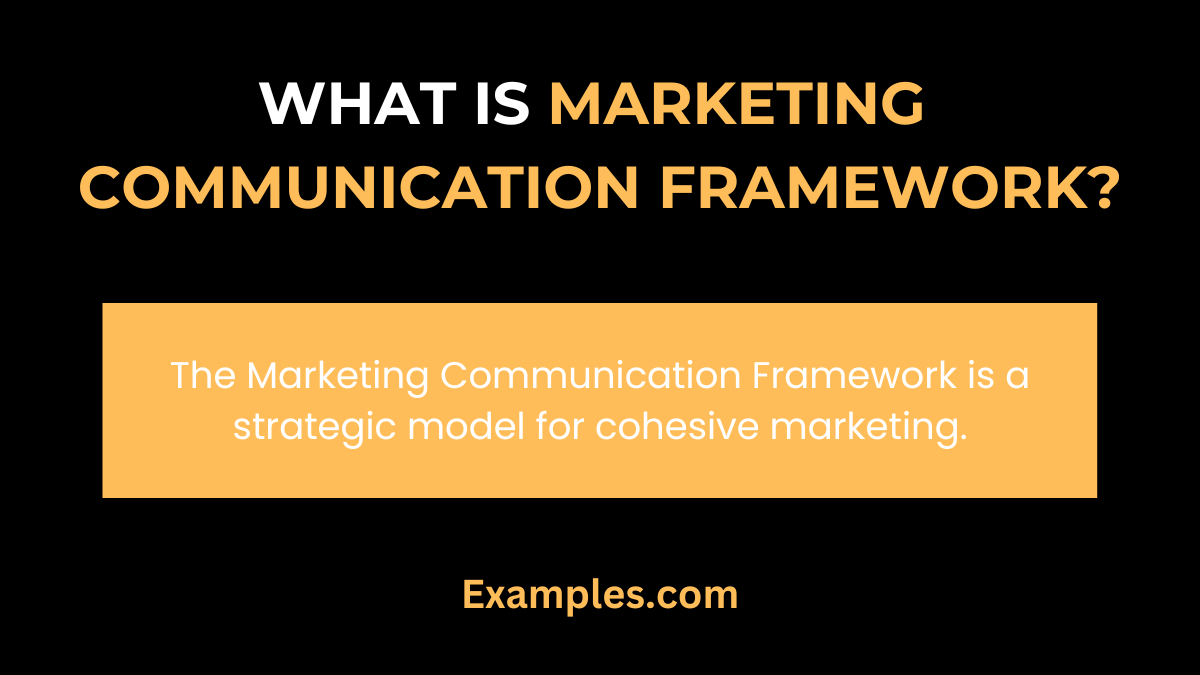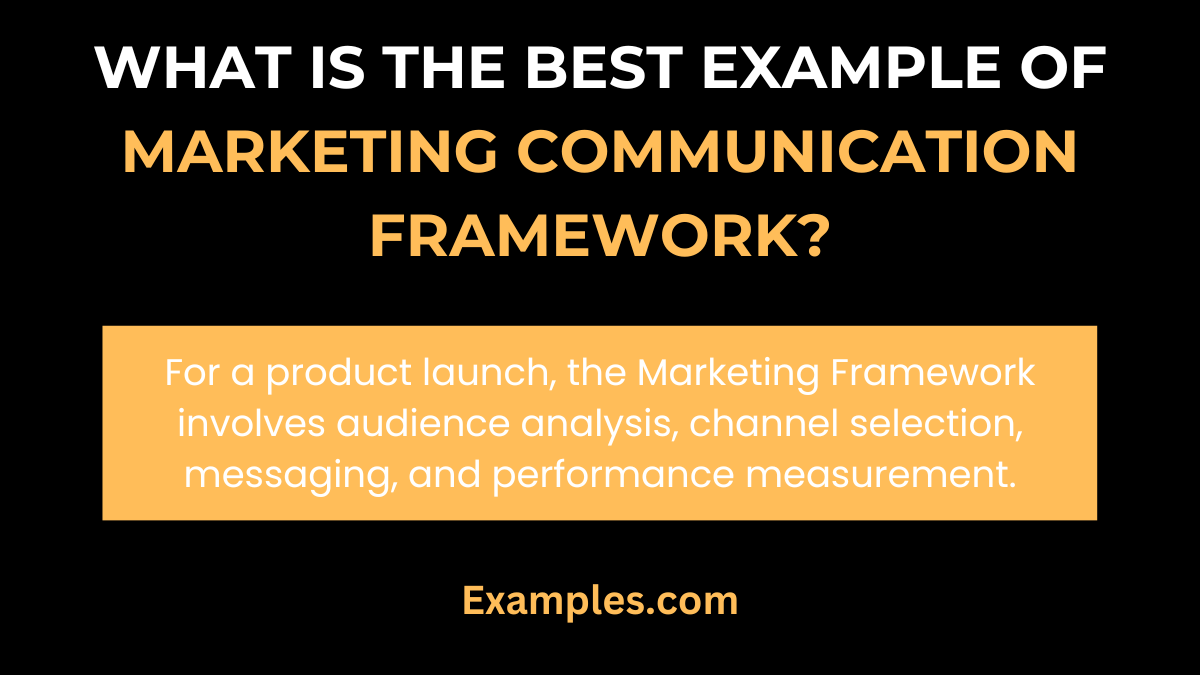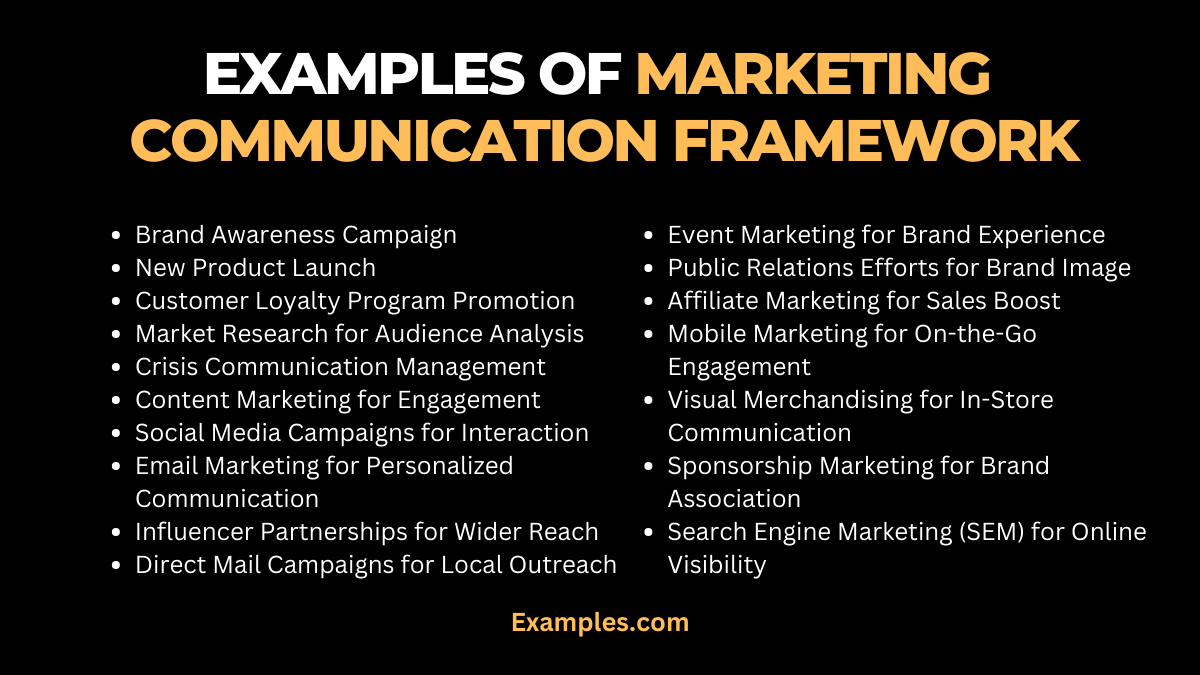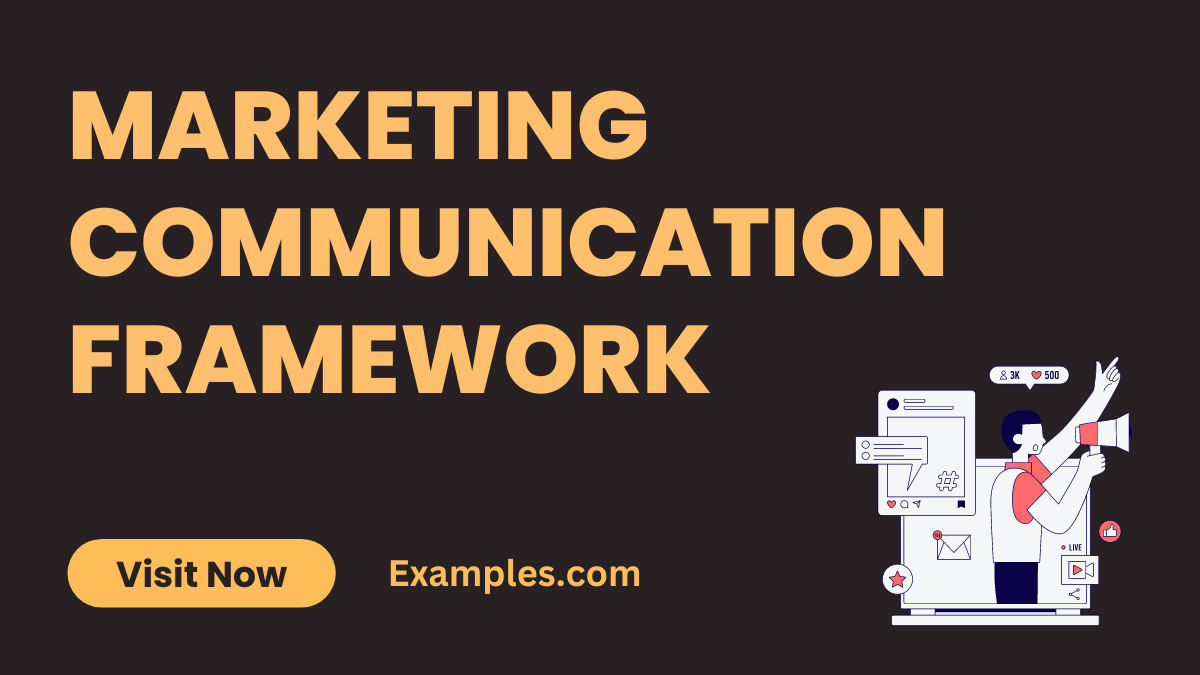Marketing Communication Framework
The Marketing Communication Framework is a cornerstone in crafting effective marketing strategies. It provides a structured approach to delivering a company’s message, ensuring that communication is clear, consistent, and targeted. This framework guides businesses in utilizing various channels and methods to reach and engage their audience effectively. Understanding and applying the principles of Marketing Communication are essential for any successful marketing endeavor, making this framework an invaluable tool for marketers and businesses alike.
What is Marketing Communication Framework?

The Marketing Communication Framework refers to the strategic model used by businesses to communicate with their audience. This framework encompasses the planning, execution, and evaluation of all marketing communication activities. It aims to ensure that all marketing efforts are cohesive, align with the company’s goals, and effectively reach the intended audience. The framework includes various components like target audience analysis, channel selection, message creation, and performance measurement.
What is the Best Example of Marketing Communication Framework?

A prime example of the Marketing Communication Framework in action is a comprehensive campaign for a new product launch. This includes market research to identify the target audience, selecting appropriate communication channels (such as social media, email, and advertising), crafting persuasive messages, and measuring the campaign’s effectiveness through customer feedback and sales data. This integrated approach ensures that all marketing efforts work in harmony to achieve the desired impact.
20 Examples of Marketing Communication Framework

The Marketing Communication Framework is an essential tool for businesses to effectively reach and engage their target audience. It involves a strategic blend of various communication methods and channels to convey a brand’s message and achieve its marketing objectives. This guide provides 20 distinct examples, each illustrating a different aspect of the framework. These examples showcase how businesses can apply specific strategies and communication tactics to enhance their marketing efforts.
- Developing a Brand Awareness Campaign: Utilizing multiple channels to increase brand recognition.
Example: “Let’s use social media, outdoor ads, and influencer partnerships to boost our brand awareness.” - Launching a New Product: Coordinating communication across platforms for a product launch.
Example: “Our product launch will combine email marketing, a special event, and targeted online ads.” - Customer Loyalty Program Promotion: Communicating rewards and benefits to existing customers.
Example: “We’ll inform our customers about the loyalty program through personalized emails and in-app notifications.” - Market Research for Audience Analysis: Using surveys and data analysis to understand the target market.
Example: “Let’s conduct online surveys to gain insights into our audience’s preferences.” - Crisis Communication Management: Handling public relations during a crisis.
Example: “In response to the crisis, we’ll issue a press release and hold a press conference.” - Content Marketing for Engagement: Creating valuable content to engage the audience.
Example: “Our blog and video series will provide useful information to engage our audience.” - Social Media Campaigns for Interaction: Using social media for customer interaction and feedback.
Example: “We’ll launch a social media campaign to encourage customer participation and feedback.” - Email Marketing for Personalized Communication: Sending targeted emails to different customer segments.
Example: “Our email campaign will feature personalized content based on the customer’s purchase history.” - Influencer Partnerships for Wider Reach: Collaborating with influencers to reach a broader audience.
Example: “Partnering with influencers will help us reach a younger demographic effectively.” - Direct Mail Campaigns for Local Outreach: Sending physical mailers to local customers.
Example: “Let’s send discount coupons through direct mail to our local customer base.” - Event Marketing for Brand Experience: Hosting events to create immersive brand experiences.
Example: “Our product launch event will offer hands-on experiences and live demonstrations.” - Public Relations Efforts for Brand Image: Managing media relations to build a positive brand image.
Example: “We’ll collaborate with media outlets for feature articles about our company.” - Affiliate Marketing for Sales Boost: Leveraging affiliates to increase sales.
Example: “Our affiliate program will incentivize bloggers to promote our products.” - Mobile Marketing for On-the-Go Engagement: Reaching customers via mobile channels.
Example: “Our mobile app will send push notifications about special deals.” - Visual Merchandising for In-Store Communication: Enhancing in-store experiences with visual displays.
Example: “The new in-store displays will highlight our latest product features.” - Sponsorship Marketing for Brand Association: Sponsoring events to associate with certain values or demographics.
Example: “Sponsoring the marathon will align our brand with health and wellness.” - Search Engine Marketing (SEM) for Online Visibility: Increasing online presence through paid search ads.
Example: “Our SEM strategy will focus on high-conversion keywords related to our product.” - Integrated Campaigns for Unified Messaging: Combining multiple channels for a cohesive message.
Example: “Our integrated campaign will synchronize messaging across TV, online, and print.” - Feedback and Surveys for Customer Insights: Gathering customer feedback to improve future communications.
Example: “Post-purchase surveys will help us understand customer satisfaction levels.” - Data-Driven Strategies for Targeted Marketing: Using data analytics to refine marketing communication.
Example: “Data analytics will guide our decisions on which channels are most effective for our audience.”
By employing these diverse examples of the Marketing Communication Framework, businesses can create more impactful and resonant marketing campaigns, tailored to the needs and preferences of their audience.
Benefits of Marketing Communication Framework
The Marketing Communication Framework offers numerous benefits, playing a crucial role in the success of marketing strategies. By providing a structured approach, it enhances the effectiveness and efficiency of communication efforts.
- Enhanced Brand Awareness: Consistent messaging across channels increases brand recognition.
- Improved Customer Engagement: Targeted communication fosters deeper customer relationships.
- Streamlined Communication Process: Provides a clear roadmap for messaging and channel selection.
- Greater Marketing Efficiency: Reduces wasted effort and resources on ineffective communication.
- Data-Driven Decision Making: Frameworks often incorporate analytics for informed strategies.
- Adaptability to Market Changes: Flexible frameworks quickly adjust to market dynamics.
- Alignment with Business Objectives: Ensures marketing efforts support overall business goals.
- Consistency Across Channels: Maintains uniformity in message across different platforms.
Role of Marketing Communication Framework
The Marketing Communication Framework plays a pivotal role in guiding and shaping a company’s marketing efforts. It serves as the backbone for developing and executing effective communication strategies.
- Strategic Planning Guide: Acts as a blueprint for all marketing communications.
- Coordination of Multiple Channels: Ensures integrated use of various communication mediums.
- Target Audience Identification: Helps in pinpointing and understanding the target market.
- Message Development and Delivery: Aids in crafting and disseminating clear messages.
- Budget Allocation: Guides the distribution of marketing resources effectively.
- Performance Measurement: Provides tools for evaluating the impact of marketing activities.
- Risk Management: Identifies potential communication pitfalls and ways to mitigate them.
- Innovation in Communication: Encourages the use of new tools and techniques.
Concepts of Effective Marketing Communication Framework
Effective Marketing Communication Frameworks are built on several key concepts, which ensure that marketing communication is impactful and aligns with the company’s goals.
- Audience-Centric Approach: Prioritizes understanding and addressing the audience’s needs.
- Integrated Marketing Communications: Combines various channels for a unified message.
- Brand Consistency: Maintains a consistent brand voice and image.
- Feedback and Responsiveness: Incorporates customer feedback for continuous improvement.
- Content Relevance: Ensures content is pertinent and engaging to the audience.
- Strategic Timing: Aligns communication with optimal timing for maximum impact.
- Creative and Innovative Messaging: Utilizes creativity to stand out in the marketplace.
- Continuous Evolution and Adaptation: Adapts to changing market trends and consumer behavior.
Each of these points contributes to the creation of a robust and effective Marketing Communication Framework, enabling businesses to communicate effectively with their audience and achieve their marketing objectives.
The Marketing Communication Framework is integral to successful marketing strategies. It guides businesses in effectively reaching and engaging their audience, ensuring consistent messaging and strategic alignment with business goals. This framework not only enhances brand awareness and customer engagement but also fosters innovation and adaptability in marketing efforts. Understanding and applying this framework is key to achieving impactful communication and sustained marketing success.



